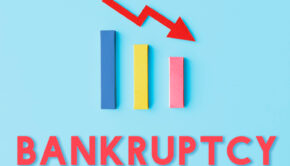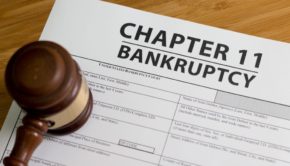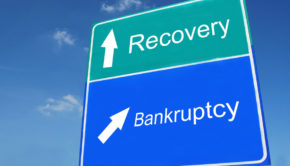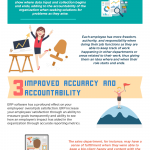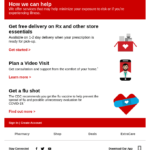How the COVID pandemic is impacting bankruptcies
COVID has created a number of complications for people at all levels, and one of those areas is in bankruptcy. Bankruptcy is not a fun process to have to go through at the best of times and going through it when you are juggling so many other things only makes it harder. A lot of bankruptcy attorneys try their best to keep things moving slowly, for both the sake of their clients as well as for the sake of their business, being a mutually beneficial arrangement. However, it is sadly not as simple as a force of will to push it through, as COVID has introduced a number of new complications for the both of them to grapple with.
What has COVID done to impact the bankruptcy process?
As COVID grows more problematic by the day in the United States, people are just as concerned about every area that it touches in terms of stability, bankruptcy included. Bankruptcy can be a frustrating procedure with or without COVID, and COVID has definitely caused a number of delays for US residents trying to file. There is also a lot of changes to the procedures behind handling bankruptcy cases; for example, while bankruptcy courts are still open, court cases have been handled over the phone predominantly instead of in person in order to avoid the spread of the Coronavirus through such in-person trials.
While a good number of bankruptcy cases have been pushed back, you can still file for bankruptcy — it just is going to take a lot longer to resolve due to the above-mentioned delays. If you had a 341(a) bankruptcy hearing set up, they have been delayed as a result of the pandemic. You will be informed by a representative of the courts as to when your hearing gets another date, although these hearings will not be held in person for as long as COVID-19 continues to be a health issue.
Nevertheless, you continue to have an obligation to pay your debts in a bankruptcy case after this, so long as it is agreed as to what you owe and how much you owe. Some bankruptcy hearings are done over the phone, though many jurisdictions do not have such a system set up for 341(a) bankruptcy hearings unfortunately, although you should check up for your respective jurisdiction whether this service is even available.
COVID is not just affecting the bankruptcy hearings, but may also affect how bankruptcy payments are handled. You will still likely have to handle your personal liquidation of assets if that was a part of your arrangement, but other factors may see change. For example, a lot of people were worried about how their debts would affect their 1200-dollar stimulus check, which a lot of Americans were in desperate need of given the economic shutdown that was experienced nationwide.
The good news is that this check is protected from Chapter 7 and Chapter 13 Trustees, ensuring that you still have that extra money to keep yourself afloat, at least somewhat, during these trying times. Even with that stimulus check, however, there is still the risk that you may not be as able to pay your debts as you were in 2019. If this is the case, be sure to get in contact with your Trustee, as they may have a plan in place to deal with that loss of income for people affected by COVID, or they may even be willing to negotiate a payment plan that is more comfortable to the debtor from month to month. Be sure to have documentation prepared for the Trustee to review to prove income loss during when job loss started to rise as a result of COVID. Unless an exception is made by the Trustee, however, you are going to be expected to continue making payments to the Trustee. Other debts are being handled in a similar way, though as always, you must consult with the relevant organizations to determine whether you are eligible for grace periods to delay payments for these debts, such as if you have an active mortgage you are paying off.
Has COVID resulted in a rise in businesses going bankrupt?
The economic crash in 2020, precipitated by COVID, has had a huge impact on multiple classes of people, including small- and middle-sized businesses. However, bankruptcy is not necessarily the fate of these struggling smaller businesses. The Coronavirus Aid, Relief and Economic Security Act, or CARES Act for short, did a world of good to help these businesses stay afloat, and hopefully it will be able to last until things begin to get back to normal. However, it cannot be said that bankruptcies are not of a greater risk to businesses than they were the previous year, with reports indicating significantly more businesses filing for bankruptcy later in that year.
For example, in New York, bankruptcies saw a surge in September 2020, increasing by 40 percent. Meanwhile, businesses nationwide are experiencing a 10-year high for bankruptcies, which has many serious implications given that 10 years ago, we were still trying to crawl our way out of the economic crash of 2007.
Ultimately, bankruptcy is a complicate process, and COVID only makes it more complicated than it used to be. Be it having dates changed, having less money to pay your payments, needing to figure out whether you will be able to get assistance for you and/or your business, having an attorney on your side to guide you through it is a helpful advantage that can see some stability in your life.
Photo by Melinda Gimpel on Unsplash



